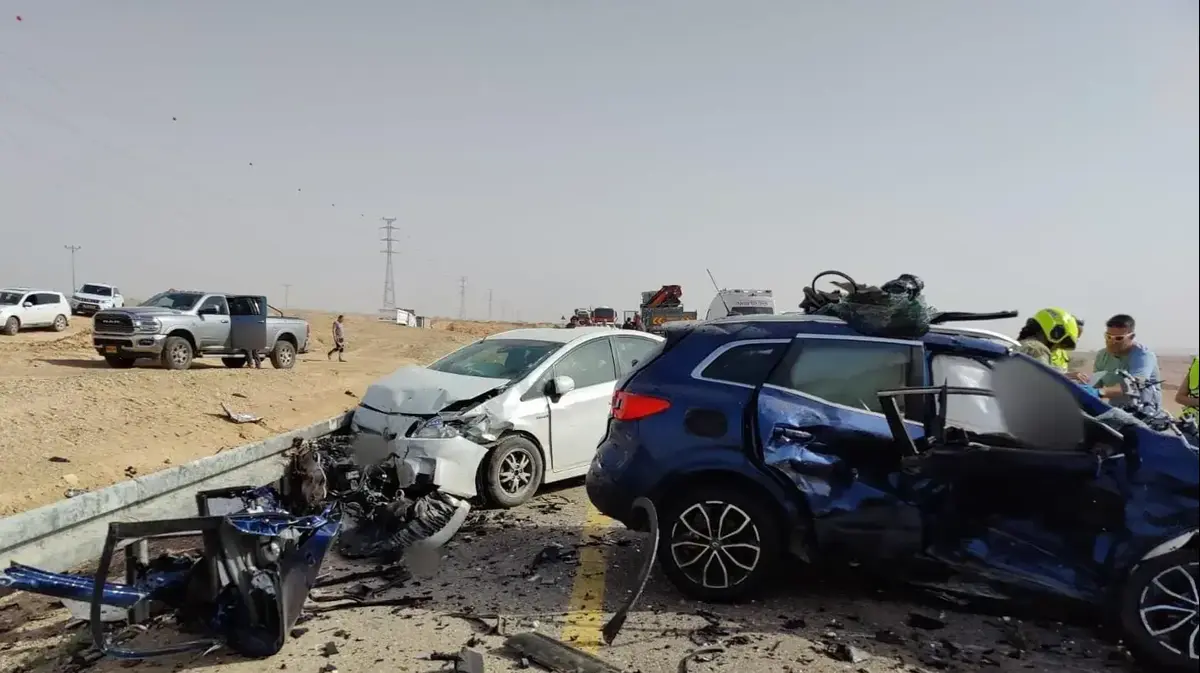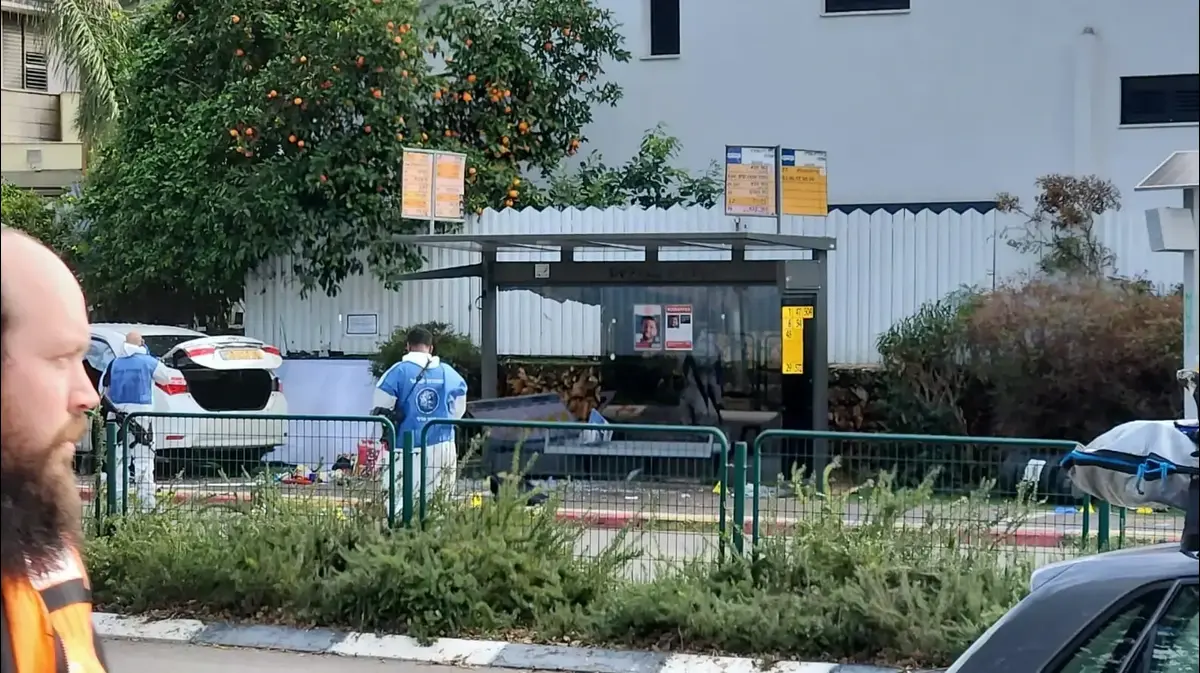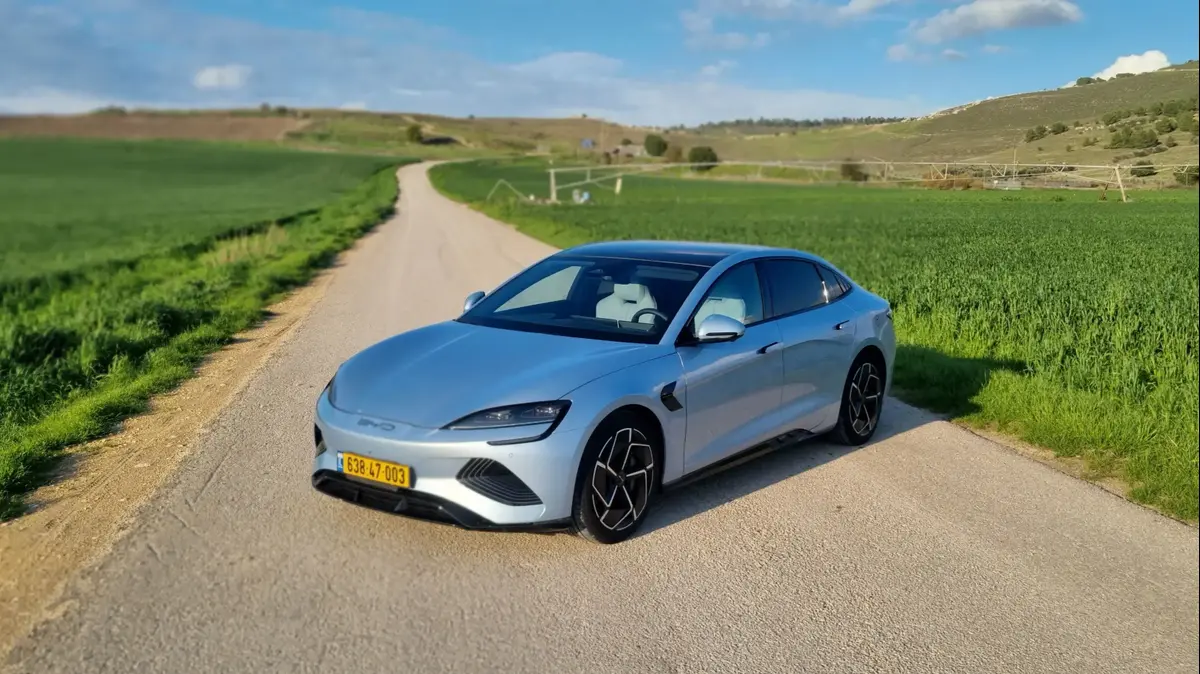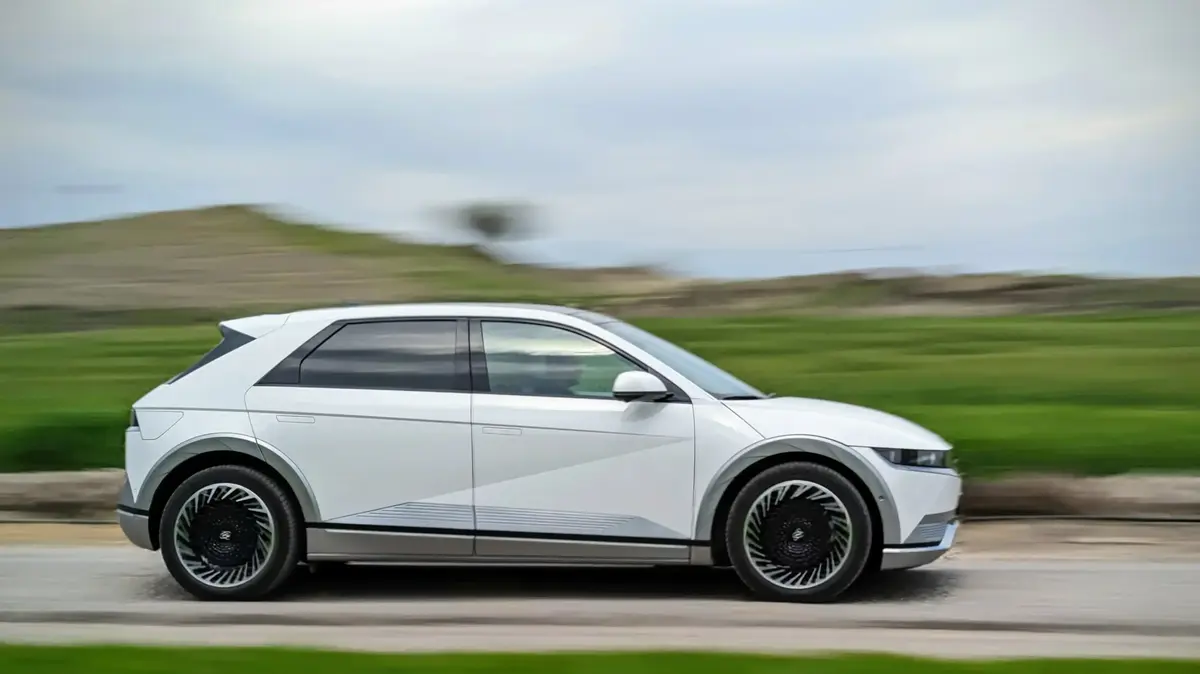Suddenly, out of control, by another: Israelis in fear of death on the roads
The Social Survey of the Central Bureau of Statistics for 2021 reveals that when it comes to what happens on the roads, Israelis simply fear for their lives as drivers, passengers and pedestrians.
Keenan Cohen
05/07/2022
Tuesday, 05 July 2022, 07:46 Updated: 08:12
Share on Facebook
Share on WhatsApp
Share on Twitter
Share on Email
Share on general
Comments
Comments
Fear of being harmed is higher among the Arab population (Photo: MDA)
We ended 2021, one of the bloodiest and deadliest years in the last decade on the roads with 364 road deaths, almost every day of the year.
They included pedestrians, drivers, passengers, adults, young people, motorcyclists, cyclists and scooters, right and left voters, academics and elementary students, residents of Tel Aviv and the periphery, Arabs, Jews, Christians - it had all the Israeli mosaic.
And the roulette that spins on the roads and seems to be able to stop quite randomly on each of us, is one of the biggest concerns of the public in Israel.
These are the data published from the Social Survey of the Central Bureau of Statistics on road safety in 2021.
From a laser visit
The facial treatments revolution: artificial intelligence and RF technology in home appliances
Served on behalf of Bee Cure Laser
Only 15% of pedestrians feel very safe on the road (Photo: Shlomi Gabay)
The most worrying statistic: 76% of Israelis have some fear of being involved in a car accident, whether as pedestrians, passengers or drivers.
When the groups were divided into pedestrians, car occupants, car drivers and two-wheeled distribution riders told a lot of the story of what was happening on the roads.
Only 15% percent of pedestrians feel "very safe" on the road, and 46% feel "safe", 37% percent feel not so safe or not safe at all.
By sector, among the Arab respondents 42% feel insecure, among Jewish society 36%.
A consequence of the high percentage of casualties among the Arab population in relation to its relative share in the general population, problematic driving culture and infrastructure gap in some Arab localities.
As passengers in a car, 12% feel "very safe", 48% feel "safe" and more than a third (37%) do not feel safe.
In contrast, as drivers, 21% feel "very safe", and 47% feel "safe" and 32% do not feel safe.
What happens when we get on two wheels?
Only 4.5% feel very safe, 13% feel safe.
But the vast majority - 82% do not feel safe - 26% are not so sure and 56% do not feel safe at all.
Among men 79% do not feel safe and among women 88%.
For riders of scooters and electric bicycles - 74% do not feel safe.
Only 4.5% on two wheels feel very safe (Photo: ShutterStock)
The differences between the sense of security as drivers versus the insecurity as pedestrians or passengers are probably related to the answers given by the respondents to another question in the survey - what are the reasons why they are afraid of being involved in a car accident.
70% of those surveyed fear an accident due to the behavior of others, 19% due to coincidence, oversight or bad luck, 17% think it will be due to the condition of the roads and only 4.4% due to their own behavior - what driving experts call "excellent driver syndrome".
That is, these will always and very likely be all the other factors and not me.
The only reason the survey participants feared a 2.2% decrease is the condition of the vehicles.
On the functioning of the state and its attempts to reduce road accidents and promote road safety, the results of the survey were almost equivalent when 47% think so (to a large extent and to some extent) and 48% think not (not so and not at all)
52% admit that they drive 20 km / h above the speed limit outside the city (Photo: Reuven Castro)
These are data that definitely need a rethink on the distribution of enforcement of the speeding offense that is done mostly outside the city and not within the cities
When asked about their behavior on the road, 57% of drivers admitted that they drive at a speed of 10 km / h or more on urban roads. On interurban roads, 52% admitted that they drive at a speed of 20 km / h or more.
In both cases it was the men who admitted that they were driving faster.
The survey itself did not provide an answer, but these are data that certainly need to rethink the speed distribution enforcement that is done mostly outside the city and not within cities, where any deviation from speed is much more dangerous due to proximity to vulnerable pedestrians and the proximity of intersections.
What about using a cell phone?
Well a little over a quarter of respondents (26%) admitted that they read text messages while driving, when no difference was found between men and women here.
Writing messages?
This makes people a little more apprehensive - only 16% India because they do.
Here, too, the same relationship between women and men.
Regarding hands-free cell phone talk, only 2.7% admitted that they do it often, 15% do it occasionally or infrequently and 81% said they never talk without a handsfree.
Here it is significant that the vast majority of new cars in recent years come with built-in handsets.
Keeping distance, it turns out, is a real challenge for drivers when a third of them do not.
6% do not keep distance often and 27% do so occasionally or infrequently.
95% of those who drive children make sure to fasten on every trip (Photo: ShutterStock)
But if there are bright spots in this survey, they can be found in the fact that 95% of drivers said they do not drive at a red light.
Note, however, that the question refers to the transition consciously and we do not count here those who do so without paying attention.
Among pedestrians 33% admitted that they cross at a red light when men do so more than women and younger than adults (aged 65 and over).
Also a few percent admitted that they drove after taking drugs that may affect driving (3.6%), after drinking alcohol (4.5%) or driving wildly (4.9%).
Regarding seat belts, there seems to be a complete consensus - 91% of those aged 20 and over wear seat belts on every trip.
96% of all drivers without gender differences strap on every ride and 95% of those who drive children make sure to fasten their seatbelts on every ride.
A third of drivers do not keep their distance (Photo: PR)
In response to the survey findings, Adv. Yaniv Yaakov, CEO of the Green Light Association, tells Walla! Rachav: Depression and failure fail for all the bodies responsible for our life on the road. This is a sad and painful picture that also arises in human life. Many testify that they drive at excessive speed and use their cell phones while driving. The law because they know that the chances of being caught are slim. The Ministry of Transportation and Road Safety and the police must internalize that the issue of road accidents occupies a central place in the life of the Israeli public and causes it great concern in simple and basic activities such as walking. Adam and will increase the sense of safety and security of the residents of Israel "
vehicle
Car News
Tags
accident
car accident
Survey
safety















